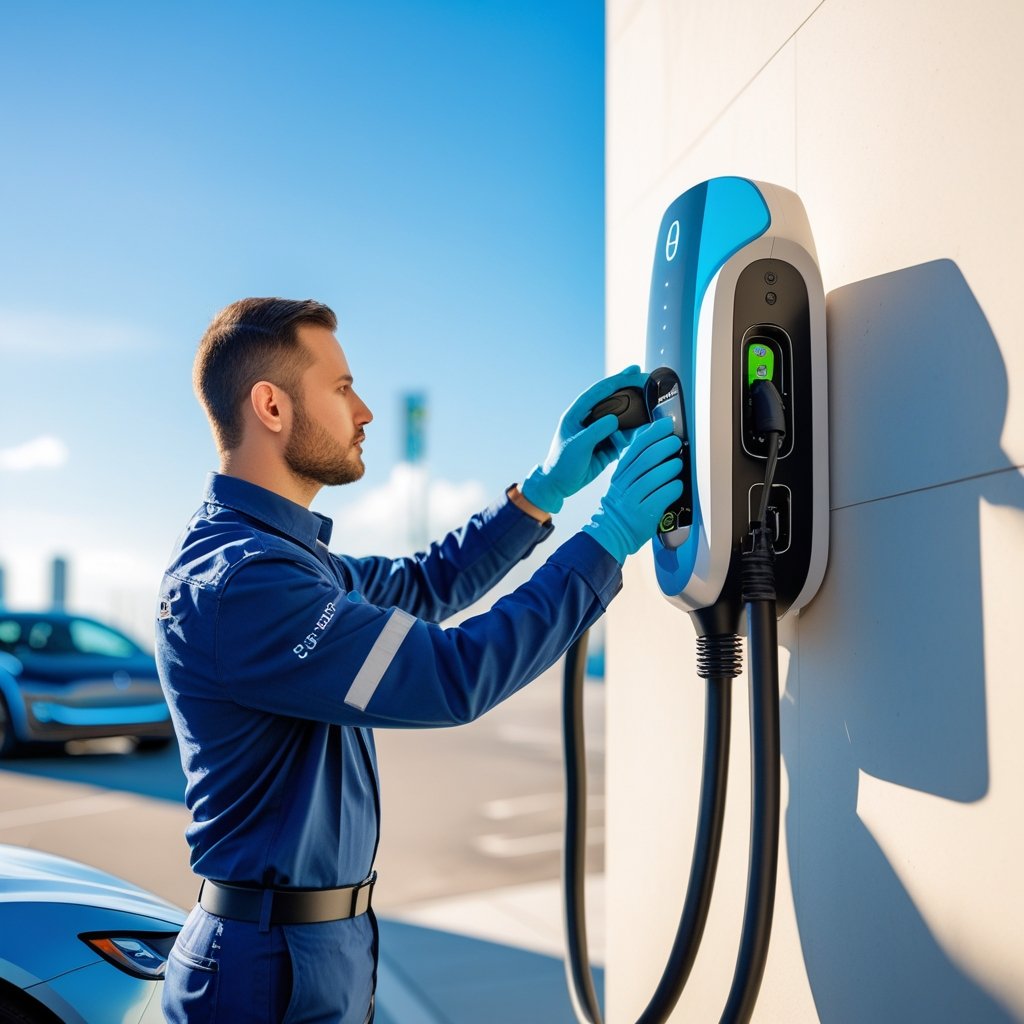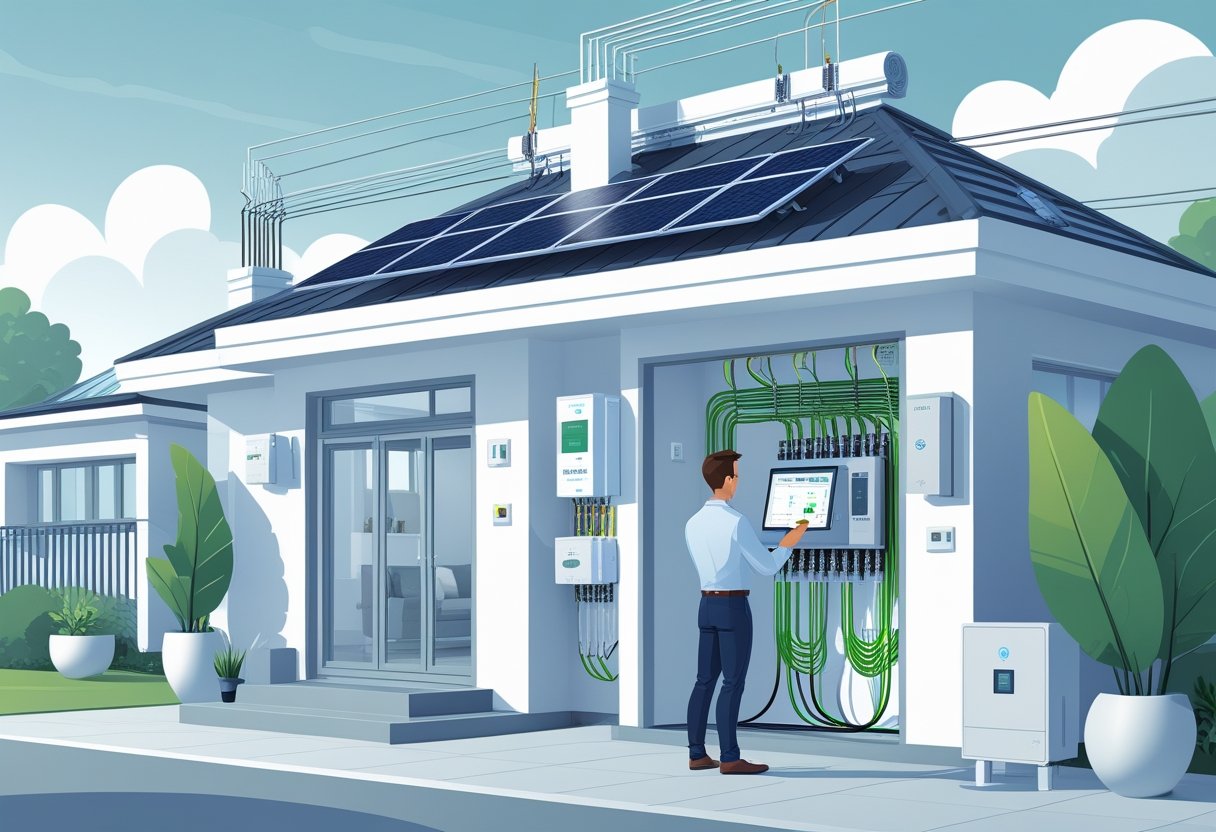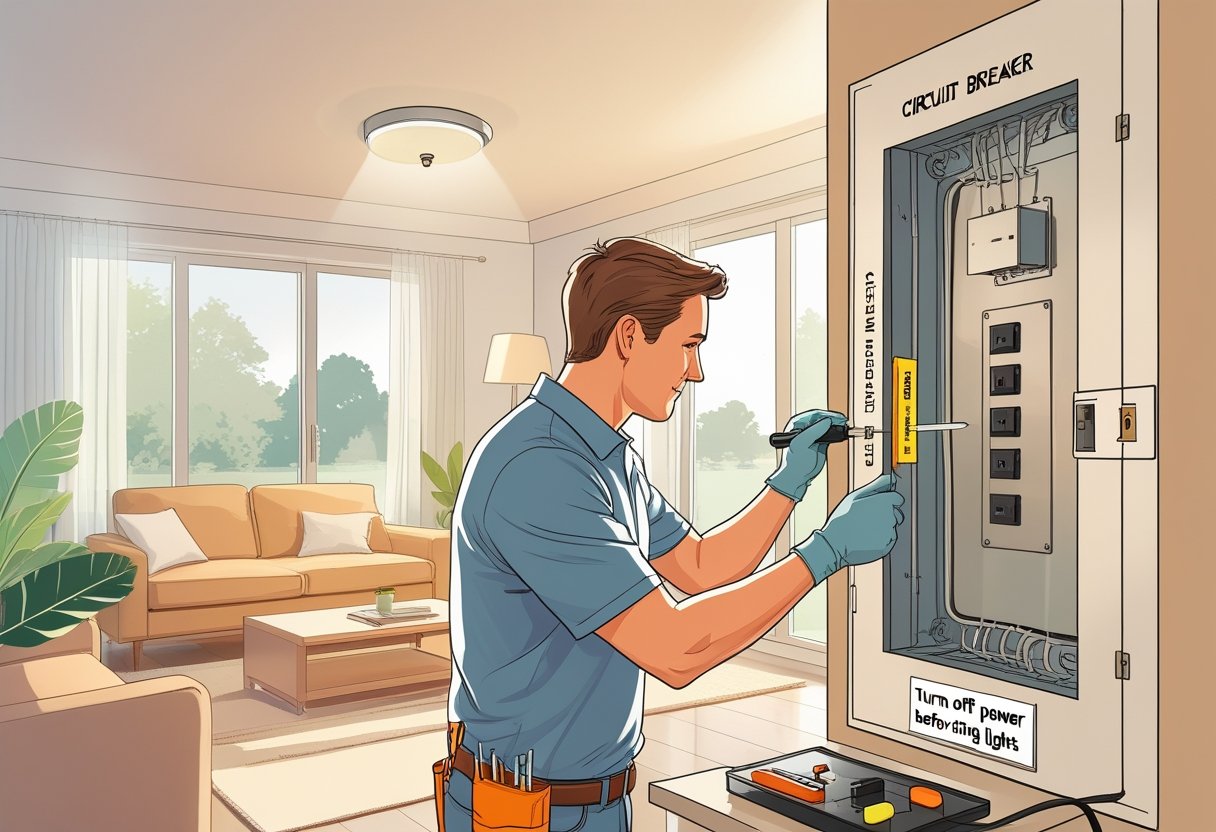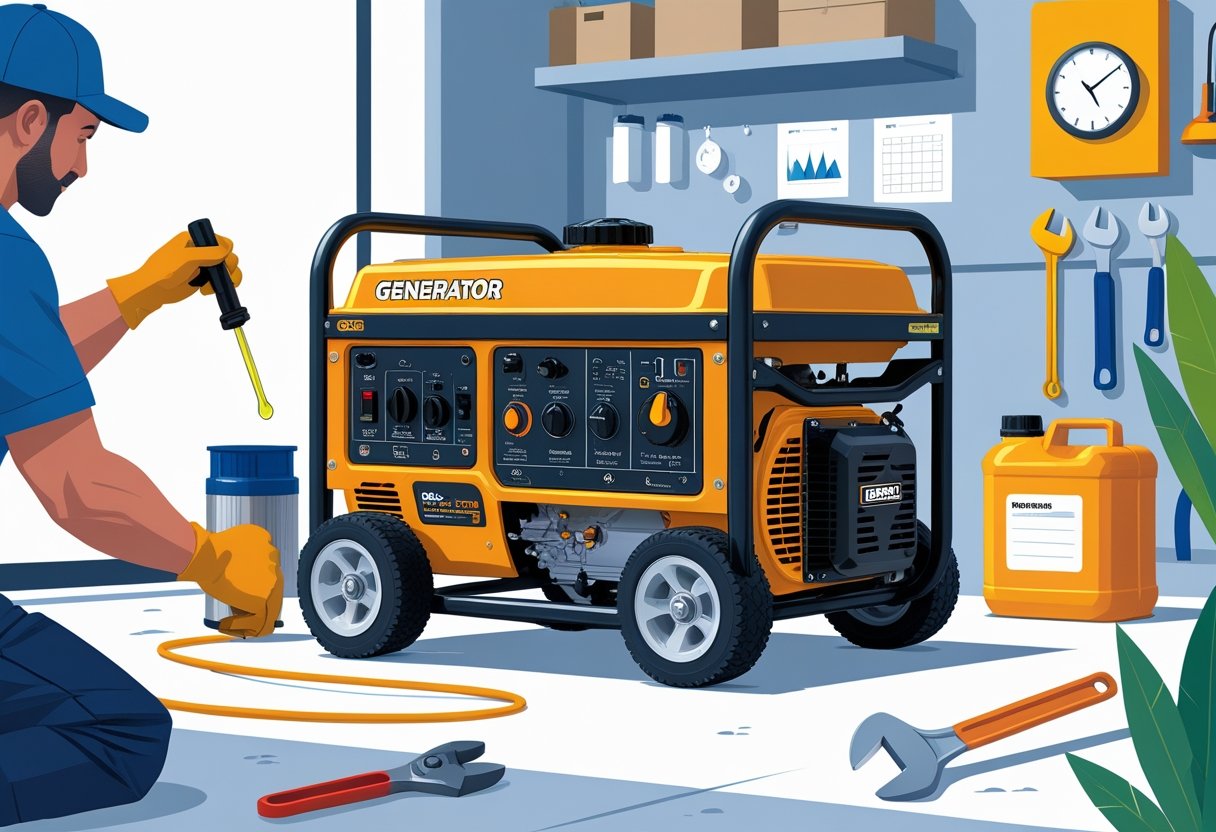If you're thinking about installing an EV charger at home, you may be wondering how much it will cost. The average price to install an EV charger at home usually ranges between $546 and $2,750, depending on your charger type and your home's electrical setup.
Knowing this range helps you plan your budget and avoid any surprises. Getting your EV charger installed by professionals like AAA Electrical Services means you get safe, reliable work with upfront pricing and no hidden fees.
Serving the Sacramento area and nearby communities, they offer same-day service and bring stocked vans for quick fixes. This helps you get set up fast without hassle.
Average Cost Of Installing An EV Charger At Home
Installing an EV charger at your home is a smart move for convenience and safety. The price depends on where you live, the charger type, and what needs to be upgraded in your electrical system.
Knowing the costs helps you plan better.
National Cost Range Overview
The average cost to install an EV charger at home ranges from about $546 to $2,750. This wide range depends on factors like the charger's power level, how complex the installation is, and whether your electrical panel needs an upgrade.
Basic setups with minimal changes cost less, around the lower end. More complex jobs, especially if you need to upgrade your electrical panel, will push the price higher.
If you live near Sacramento or surrounding areas, AAA Electrical Services offers transparent and flat-rate pricing with same-day service. This makes the process simple and safe.
Cost By Charger Level
There are mainly two levels of home EV chargers: Level 1 and Level 2. Level 1 chargers plug into a standard 120-volt outlet but charge very slowly.
Installing these usually costs less or nothing if you use your current outlets. Level 2 chargers run at 240 volts, charging your car faster.
These chargers usually cost more, including the equipment priced between $500 and $700 plus installation fees. Installation often ranges between $600 and $2,000 depending on the upgrades your home needs.
A Level 2 charger is the most common choice because it combines speed and efficiency. This saves you time on daily charging.
Typical Price Breakdown
Here’s a simple cost breakdown for a typical Level 2 EV charger installation:
- Charging unit: $500 to $700
- Installation labor: $400 to $1,500
- Electrical panel upgrades (if needed): $1,300 to $3,000
- Permits and inspections: $50 to $200
Most homes don’t need a full panel upgrade, but if you do, that adds significantly to the cost. AAA Electrical Services uses licensed professionals who focus on family safety and clean, efficient work.
Their “warehouse on wheels” policy means many fixes get done the same day. This saves you time and hassle.
Factors Influencing Home EV Charger Installation Costs
The price to install an EV charger at home depends on several key elements. These include the current state of your electrical system, how far the charger will sit from your main panel, and the type and location of your home.
Each factor can add to the work and cost needed to finish the installation safely and efficiently.
Electrical System Upgrades
Your home's electrical system plays a big role in how much installation will cost. If your electrical panel is old or not able to handle the extra load from an EV charger, it may need to be upgraded.
This means replacing or adding a new circuit breaker panel, which requires extra labor and materials. Older homes often have panels rated for 100 amps or less, but many EV chargers require 200 amps overall for safe operation.
Upgrades can also include installing new wiring or adding a subpanel closer to where the charger will be. These improvements increase both safety and convenience but add to the installation price.
Choosing AAA Electrical Services means licensed professionals will check your system carefully. They’ll help you understand if you need upgrades and give you straightforward, flat-rate prices.
Distance From Panel To Charger
Where you want to place the charger in relation to your electrical panel affects the installation cost. The longer the distance, the more wiring and conduit are needed.
This means higher material costs and more time for running cables safely through walls, ceilings, or underground. For example, if your panel is in the garage and you want your charger on the driveway far from the garage, expect costs to rise.
Short distances near your panel often only need a few feet of wiring and simple installation. Longer distances might also involve trenching or special approvals to meet local code.
Planning your charger location carefully can reduce unnecessary expenses. This keeps your charging setup safe and efficient.
Home Type And Location
Your home's style and where you live can change installation complexity and price. Detached houses usually have more space to run wiring, making installation easier.
Condos, townhouses, or homes with tight electrical closets may require special permissions or more tricky wiring work. Local rules and permit costs vary by city or county.
In Sacramento and surrounding areas like Roseville or Elk Grove, permits and inspections are required. These add fees and timing to your project.
Hiring AAA Electrical Services means you’ll get help navigating local regulations. Homes in older neighborhoods might also need updated electrical panels to support modern power needs.
Newer builds often are ready for EV chargers. This cuts down on additional costs.
AAA Electrical Services offers safe, family-focused installations customized for your home’s needs in Sacramento and nearby areas. Their trained electricians take care of everything from permits to wiring.
You can plug in and relax with confidence.
Types Of EV Chargers And Their Costs
When choosing an EV charger for your home, you’ll mainly decide between charging speed and cost. Chargers vary in power and features, which impact installation price and how fast your car gets charged.
Level 1 vs Level 2 Chargers
Level 1 chargers use a standard 120-volt outlet. They are the most affordable option, often costing little to install if you already have the outlet.
However, charging with Level 1 is slow. You might get just 3 to 5 miles of driving range per hour of charging, which can take up to 24 hours for a full charge.
Level 2 chargers use a 240-volt connection, similar to what an electric dryer requires. Installation typically ranges between $546 and $2,750, depending on your home's electrical system and wiring needs.
These chargers can add 10 to 60 miles of range per hour, making them much faster than Level 1 units. If your electrical panel needs upgrading to support a Level 2 charger, that can add $1,300 to $3,000 to the cost.
AAA Electrical Services can help guide you through this process with safety and transparent pricing.
Smart Charger Features
Smart EV chargers include features that give you more control and efficiency. They can connect to Wi-Fi, allowing you to schedule charging during off-peak hours to save money.
Some track energy use or let you monitor charging from your phone. These chargers usually cost more upfront but can offer long-term savings and convenience.
If you want to manage your energy use or prepare your home for future electric needs, a smart charger is a good choice. AAA Electrical Services installs smart chargers with a focus on your family’s safety and hassle-free setup.
Their fully licensed technicians ensure your system is secure and ready to handle any upgrades down the line.
Additional Expenses To Consider
When installing an EV charger at home, the cost of the charger itself is just one part. You’ll also need to budget for fees and labor that can add up.
These extra expenses help make sure your charger is installed safely and up to code.
Permitting And Inspection Fees
Before installation, your local city or county may require permits. These permits ensure your electrical work meets safety standards.
Permit costs usually range from $50 to $200, but can vary depending on where you live. After installation, an inspection is often required.
This inspection confirms the work is done correctly and safely. Inspection fees are sometimes included in the permit, but if not, expect to pay an extra $50 to $150.
Skipping these steps isn’t recommended because unpermitted work can lead to fines and insurance problems. AAA Electrical Services can help you navigate this process to keep everything above board and protect your home.
Labor Costs
Labor makes up a big part of your total EV charger installation cost. Electricians usually charge between $70 and $150 per hour.
Depending on your home’s electrical setup, a straightforward install may take 2 to 4 hours. More complex jobs can take longer.
If your electrical panel needs an upgrade or repairs, expect extra labor time and fees. Licensed electricians like those at AAA Electrical Services bring the expertise to work quickly and safely.
Getting a clear, flat-rate quote up front helps avoid surprises. Skilled pros also ensure the charger is installed near your parking spot and electrical panel, which can keep labor and material costs down.
Cost Comparison: DIY vs Professional Installation
When deciding how to install your EV charger, knowing the differences between doing it yourself and hiring a professional helps you weigh time, cost, and safety. This guide breaks down the advantages and costs of each option.
Pros And Cons Of Each Approach
Doing a DIY EV charger installation can save money upfront since you skip labor fees. If you have electrical experience, it might seem easy.
But mistakes can cause safety risks or damage to your home’s electrical system. Hiring a professional brings peace of mind and safety.
Licensed electricians like those at AAA Electrical Services follow strict codes and make sure your charger works correctly. Plus, they handle permits and inspections.
The downside is higher cost and scheduling time. DIY might work if you have electrical skills and a simple setup.
For most homes, professional installation is safer and more reliable, especially if your electrical panel needs upgrading.
Typical Labor Charges
Labor charges for professional EV charger installation usually range from $500 to $1,500, depending on the complexity. If your panel needs an upgrade, costs can rise by $1,300 to $3,000.
Installers often complete the job in 2 to 4 hours if no major upgrades are required. AAA Electrical Services offers flat-rate pricing upfront, so you won’t face surprise fees.
Their skilled technicians come prepared with stocked vans, often fixing things the same day for your convenience. While DIY may reduce labor costs, you risk extra expenses if you encounter problems.
Professional installations protect your home and ensure your family’s safety.
Available Incentives And Rebates
When you install an EV charger at home, you might be able to save money through rebates or incentives. Many states and local utilities offer programs that cut down the overall installation cost.
You can often get tax credits or cash rebates depending on where you live. These incentives make home EV chargers more affordable by lowering upfront expenses.
It’s a smart idea to check what’s available in your area before starting the installation. At AAA Electrical Services, we help customers in Sacramento and nearby areas take full advantage of these savings.
Our licensed technicians stay up to date with local and federal programs, so you get the best deal possible.
Here are some common programs you might find:
- State government rebates
- Utility company discounts
- Federal tax credits
Some programs require specific voltage or charger types, so professional advice is important. Our team can guide you to choose the right charger while maximizing your savings.
Incentives often change, so acting quickly gives you the best chance to benefit. You can also join our membership program for a 10% service discount on EV charger installation, adding extra value when upgrading your home.
Safety-first electrical work done by licensed professionals ensures your family’s peace of mind during every step. Same-day service and flat-rate pricing mean no surprises along the way.
Tips For Reducing EV Charger Installation Costs
You can save money by choosing the right type of EV charger for your home. Level 1 chargers use standard outlets and cost less but charge slowly.
Level 2 chargers are faster but might need electrical upgrades. These upgrades can add to your cost.
Check if your home’s electrical panel can support the charger. If you need an upgrade, this will raise the price.
Plan ahead with a professional electrician to avoid unexpected fees. Permits and inspections may be required by your city.
Handle permits and inspections early to prevent delays and extra charges. AAA Electrical Services offers flat-rate pricing, so you know what you’ll pay before work starts.
You can also save by scheduling your installation during off-peak times. Combining the installation with other electrical work can reduce labor costs and save you time.
When choosing a company, look for licensed and insured electricians who prioritize safety. AAA Electrical Services serves Sacramento and nearby areas.
They offer same-day service and technicians stocked to fix most issues on the spot.
Here’s a simple checklist to help lower your costs:
- Pick a Level 1 charger if you don’t need fast charges
- Check if your electrical panel can handle the charger
- Plan for permits before installation
- Schedule during non-busy times
- Use a trusted local electrician with transparent pricing
Understanding Long-Term Savings
Investing in an EV charger at home can save you money over time. Charging your electric vehicle is usually cheaper than buying gas.
You can save even more by charging during off-peak hours when electricity rates are lower. Fewer trips to public charging stations also reduce your costs.
Having your own charger means more convenience and fewer fees. You might pay more upfront for installation, but this leads to future savings.
FactorImpact on Savings Electricity CostsLower than gasoline per mileHome Charging TimeCharge overnight, save on demand feesMaintenanceFewer moving parts in EVs mean less repair
You also add value to your home by future-proofing it for clean energy. AAA’s Sacramento-area licensed experts ensure the job is done right and focus on safety and fast, friendly service.
Long-term savings come from reduced fuel costs, fewer vehicle repairs, and the convenience of charging at home.
Frequently Asked Questions
Installing an EV charger at home can vary quite a bit in cost. Factors like the charger type, your home’s electrical setup, and where you live all play roles in what you might pay.
How much does it typically cost to install a Level 2 EV charger at home?
For a Level 2 charger, expect to pay between $600 and $2,500. This price depends on your existing electrical system and how much work the installation requires.
What is the price range for installing a Level 3 charging station at my house?
Level 3 chargers, or DC fast chargers, are less common for home use and can cost $10,000 or more. They often need special equipment and upgrades to your electrical panel.
Can you give me a ballpark figure for the cost of a 240v outlet installation for an EV?
Installing a 240-volt outlet, which is often needed for Level 2 chargers, usually costs between $300 and $1,200. The price depends on the distance from your panel and any electrical upgrades needed.
What are the expected costs for setting up a commercial EV charging station?
Commercial stations can be more expensive because they need heavier wiring, permits, and sometimes multiple chargers. Costs often start around $5,000 and can go much higher based on size and location.
What's the average installation cost of an EV charging point for a residential property in California?
In California, you can expect to pay from $700 to $2,700 for installation. Your city and local codes, including permit fees, can influence the final cost.
How much do electricians typically charge per hour to install a Level 2 charger?
Electricians usually charge between $75 and $150 per hour.
AAA Electrical Services offers flat-rate, upfront pricing in the Sacramento area. You won’t encounter surprise fees.
Their licensed pros handle installations cleanly and efficiently. They keep your family’s safety a top priority.





